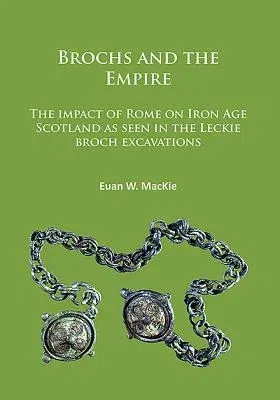The excavation of the Leckie Iron Age broch in Stirlingshire, Scotland,
took place during the 1970's after the author had been asked to organise
the work by a local archaeological society. At that stage the author did
not consider - despite its location - that the site might vividly
reflect the expansion of the Roman Empire into southern Scotland in the
late first century AD. For various reasons the final report was not
written until about thirty years after the fieldwork finished and by
then the quality and significance of the Roman finds was much better
understood, thanks to the analysis of them by experts. Many of them
seemed like gifts to the broch chief, despite the clear evidence of the
violent destruction of the broch at a later date. The Roman author
Tacitus gave a detailed account of Governor Agricola's campaigns in
southern Scotland and pointed out that he sometimes tried to make
friends with local chiefs before invading their territories, to avoid
un-necessary casualties. This also applied to the first Roman naval
excursion up the west coast and explains the evidence from Dun Ardtreck,
Skye, excavated in the 1960's. This site was also destroyed later and
this could reflect the later hostile voyage of the navy after the battle
of Mons Graupius which occurred after a few years of campaigning. Thus
Rome's accounts can allow one to understand the history of some native
sites much more vividly.

